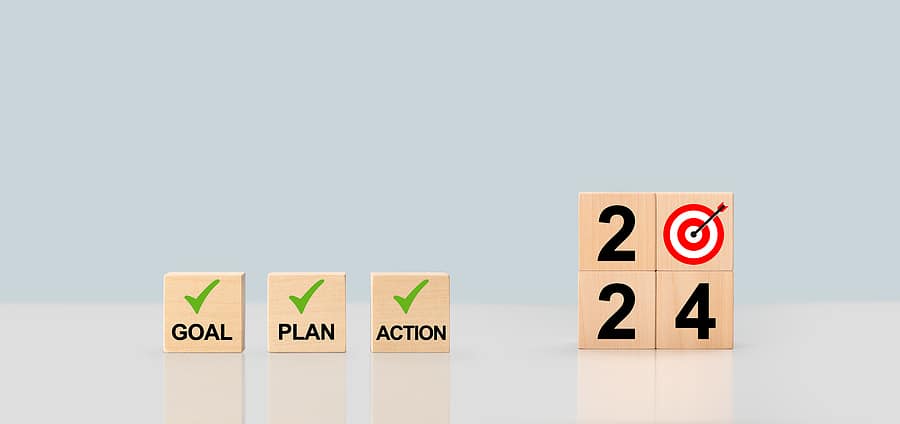The onset of a New Year often brings a spirit of change and improvement. One area of life that often receives excessive attention in the New Year is our finances. Whether it is saving more, reducing debt, or managing retirement savings, financial goals usually take precedence. There are several strategies to consider for improving your financial health:
- Create a budget. A budget is the cornerstone of financial confidence. Budgeting allows you to understand where your money is going and if it is being put to the best use. To create a budget, first calculate your total income. Then, divide your income among various categories like rent or mortgage, utilities, groceries, transportation, healthcare, personal expenses, recreation, and savings. Make sure to align your spending habits with your financial goals.
- Build emergency savings. An emergency fund acts as a financial safety net and can bail you out during unexpected circumstances like job loss, a healthcare emergency, or necessary home and car repairs. Financial professionals recommend having enough savings to cover three to six months of living expenses. Start this year by contributing monthly to your emergency savings and watch it grow. An emergency fund can offer you financial independence and financial stability.
- Pay off debt. Debt can be a significant hurdle on the road to financial well-being. In the New Year, focus on reducing your debt and aim to be entirely debt-free. Many financial professionals advocate using techniques like the “snowball method,” wherein you start by paying off small debts to gain momentum, or the “avalanche method,” where you start with the debt that has the highest interest rate. Whichever method you choose, freeing yourself from debt can help improve your financial health by eliminating stress.
- Invest in your future. Investing may play a crucial role in helping to build your wealth. Your investment choices must align with your goals, risk appetite, and timeline to meet your goals. It would be best to work with financial, insurance, tax, and legal professionals to help you pursue your goals.
- Save for retirement. The concept of retirement may seem far away, especially to younger individuals. However, the earlier you start saving for retirement, the more significant your retirement savings may be. Whether contributing to your employer’s retirement savings plan or saving for retirement individually, both may offer potential tax benefits while working toward a confident retirement. Even small contributions can make a big difference over time due to the power of compound interest.
In conclusion, improving your financial health is a long-term journey, but starting the New Year by implementing the above-discussed steps can set the right course. With disciplined spending, prudent savings, an active approach to paying off debt, thoughtful investments, and consistent retirement contributions, you can take control of your finances to help preserve your future.
SWG3218300-1123a
Disclosure: The sources used to prepare this material are believed to be true, accurate and reliable, but are not guaranteed. This information is provided as general information and is not intended to be specific financial or tax guidance. When you access a link you are leaving our website and assume total responsibility for your use of the website you are linking to. We make no representation as to the completeness or accuracy of information provided at this website. Nor is the company liable for any direct or indirect technical or system issues or any consequences arising out of your access to or your use of third-party technologies, websites, information and programs made available through this website.





